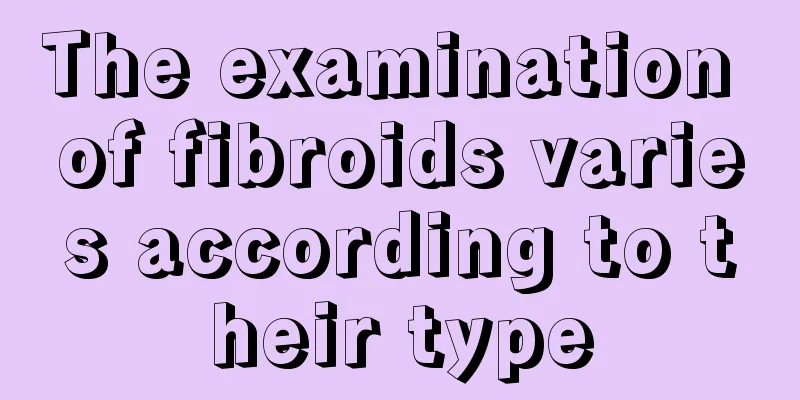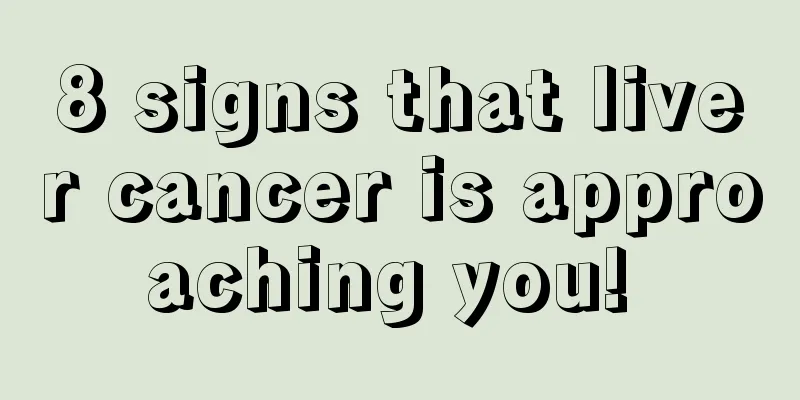I feel like vomiting after eating

|
Nowadays, many girls go on a diet and don't eat on time in order to make themselves look slimmer and more beautiful. In fact, this will have a great impact on our stomach. In severe cases, it will cause acute gastritis, which manifests as vomiting after eating a little and diarrhea. Therefore, you should not go on a diet to lose weight. Let's see what to do if you feel like vomiting after eating. 1. Causes 1. Causes of acute gastritis It can be divided into two categories: exogenous and endogenous. Anything that enters the stomach through the mouth, such as bacteria, drugs, toxins, corrosives, etc., is considered an external factor. Any pathogenic factors that spread to the stomach wall through blood circulation or lymph are called internal factors. Physical and chemical factors such as strong tea, strong coffee, spicy food, strong liquor, overcold or overheated food, rough food, etc. can damage the gastric mucosa, destroy the mucosal barrier and cause gastric mucosal inflammation. Non-steroidal anti-inflammatory drugs such as aspirin, indomethacin, certain antibiotics, corticosteroids and other drugs can not only stimulate the gastric mucosa and cause damage, but also affect the repair of the gastric mucosa and aggravate inflammation. If certain strong corrosive agents such as nitric acid, hydrochloric acid, sulfuric acid, potassium hydroxide, sodium hydroxide, etc. are swallowed, it may cause acute corrosive gastritis. 2. Causes of chronic gastritis (1) Biological factors: The main pathogen of chronic gastritis is Helicobacter pylori, and more than 90% of patients with chronic gastritis are infected with Helicobacter pylori. (2) Immune factors The onset of some chronic gastritis is related to immune factors, and parietal cell antibodies can be detected in the patient's serum. (3) Physical factors such as long-term stimulation of the gastric mucosa by overcold or overheated food, rough food, strong tea, strong coffee, strong liquor, and spicy food can lead to repeated damage to the gastric mucosa and cause chronic gastritis. (4) Chemical factors: Smoking is one of the causes of chronic gastritis. Nicotine in tobacco can affect the blood circulation of the gastric mucosa and cause dysfunction of the pyloric sphincter, resulting in bile reflux. Long-term use of nonsteroidal anti-inflammatory drugs such as aspirin, indomethacin, etc. can damage the gastric mucosal barrier. (5) Other factors such as aging, malnutrition, heart failure, cirrhosis, diabetes, and thyroid disease are all related to the onset of chronic gastritis. 2. Clinical manifestations 1. Acute gastritis The onset is acute and the clinical symptoms vary in severity. The most common is acute simple gastritis, the main symptoms of which are upper abdominal pain, abdominal distension, belching, loss of appetite, nausea, vomiting, etc. Those caused by Salmonella or Staphylococcus aureus toxins are often accompanied by diarrhea, fever, and even dehydration and shock. Acute erosive hemorrhagic gastritis may cause vomiting of blood and black stools. The main clinical manifestations of acute suppurative gastritis are systemic sepsis and acute peritonitis. The symptoms of acute corrosive gastritis are the most obvious, manifested as severe pain in the mouth, throat, behind the sternum, and upper abdomen after swallowing corrosives, accompanied by nausea, vomiting, and even vomiting blood. The mucous membranes of the lips, mouth, and throat can produce caustic scabs of different colors, which help to identify various corrosive agents. 2. Chronic gastritis The clinical manifestations of different types of gastritis may vary, but the symptoms lack specificity, and the severity is often inconsistent with the severity of the lesion. Some patients may be asymptomatic. (1) Upper abdominal pain or discomfort Most gastritis patients experience upper abdominal pain or discomfort. Most upper abdominal pain is irregular and has nothing to do with diet. The pain is generally diffuse upper abdominal burning pain, dull pain, bloating, etc. (2) Upper abdominal distension and early satiety Some patients experience abdominal distension, especially a noticeable feeling of fullness after a meal. It is often caused by food retention in the stomach, delayed emptying, and indigestion. Early satiety refers to a feeling of fullness soon after eating despite having a clear sense of hunger, and a significant reduction in food intake. (3) Belching, acid reflux, and nausea Belching indicates an increase in gas in the stomach, which is discharged through the esophagus, temporarily relieving upper abdominal distension. Acid reflux is caused by increased gastric acid secretion. (4) Other patients with severe atrophic gastritis may experience weight loss, glossitis, and diarrhea; patients with autoimmune gastritis may also have anemia. examine. |
<<: What to do if you accidentally eat a cockroach
>>: Why is there blood all over my butt when I wipe it
Recommend
What are the factors that induce lung cancer? Three factors that cause lung cancer
When it comes to lung cancer, people are very afr...
What are the ways hepatitis C is transmitted?
Hepatitis C is a contagious disease, so if you wa...
People need to pay attention to the prevention of lymphoma
Nowadays, more and more people may suffer from ly...
Do you still need to rinse your mouth after using mouthwash?
In the past, people believed that brushing teeth ...
What are the symptoms of amyotrophic lateral sclerosis?
Amyotrophic lateral sclerosis is relatively commo...
Can pregnant women drink pig stomach and chicken soup?
Everyone knows that pig stomach is not only crisp...
What are the methods of wood preservative treatment?
In daily life, we will find that wood is prone to...
What is the cause of lymphoma and how to prevent it
Every disease has a certain cause. If you want to...
Can colon cancer cause ulcers?
For example, ulcerative colitis and Japanese schi...
How to apply bb cream with a powder puff
The method of using a powder puff to apply BB cre...
What are the effects of Thai Butterfly Brand and what should we pay attention to when wearing it
The Butterfly Amulet is a belief, a Buddhist amul...
What are the symptoms of viral cold
Viral colds spread once or more every year. At th...
How to lower high ferritin
Ferritin is an important protein in the body that...
Correctly treat the treatment of melanoma in clinical practice
Regarding the treatment of melanoma, we need to b...
What causes tooth decay?
If the teeth show symptoms of caries, when the di...









